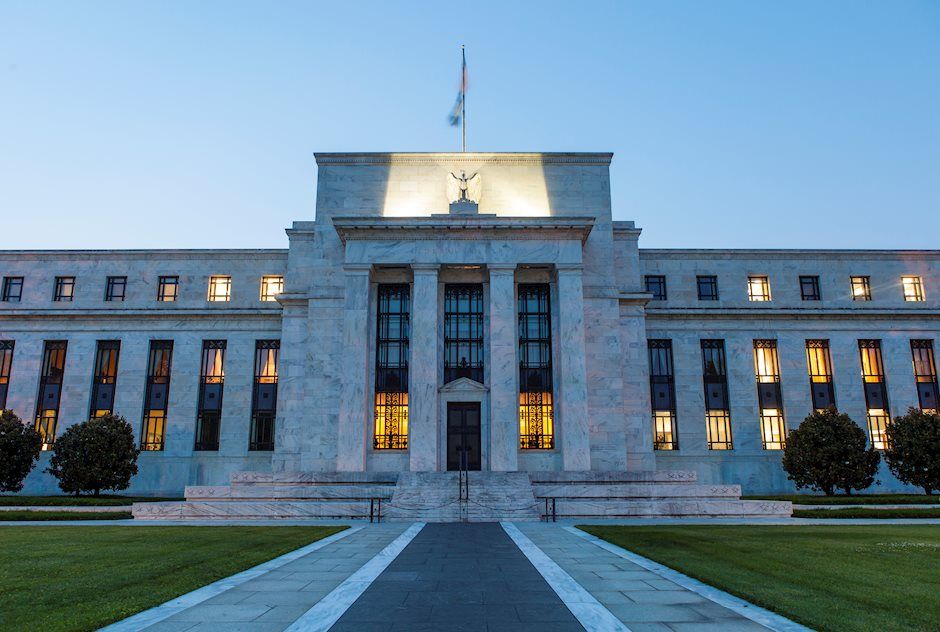When will the US Fed decide on tapering?

Next week, the Federal Open Market Committee (FOMC), which decides on monetary policy, will meet. A decision on tapering, i.e. on the reduction of monthly securities purchases, is possible, but unlikely. The conditions set by the FOMC are still unlikely to be sufficiently met. These conditions are significant progress toward the monetary policy goals of maximum employment and 2% inflation. The strongest monthly employment growth this year was reported for June, but the unemployment rate has barely declined during the last few months. Inflation rates have risen massively during the past few months, although this is partly due to temporary effects from the run-up in the economy as well as base effects. Finally, Fed Chairman Powell has also stressed several times that a series of data would be needed to demonstrate the progress desired from the central bank's perspective.
Thus, there should be no decision on tapering next week. However, it could be communicated to the markets that a decision is possibly to be expected for September. It will then be some time before the actual tapering, as has been assured by the Fed Chairman several times in the past. The FOMC should therefore stay on course to scale back its purchases around the turn of the year - we assume January. Once there is a high degree of certainty about the start of tapering, the question arises as to the speed. There are no indications from the Fed yet in this respect. In 2014, monthly purchases of USD 80bn were reduced to zero within 10 months. Due to the far advanced recovery of the US economy, the process could be faster next year. It is possible that, as a first step, purchases of mortgage bonds will be ended, as the strong housing market does not need additional support. Mortgage bonds currently account for USD 40bn of the total USD 120bn of monthly purchases.
EZ – Inflation should remain near 2%
Next week (July 30), a first flash estimate of Euro Area inflation for July will be published. In June, inflation declined slightly compared with May to 1.9% y/y. The main reason for this decline was slightly lower core inflation, which stood at 0.9% in June (May: 1.0%). Energy prices continued their high growth at 12.6%, while food price inflation remained stable at 0.5%. The level of core inflation continues to vary widely at the country level. While core inflation in Germany and France is at levels above 1%, core inflation rates in Italy and Spain remain extremely low. Due to the aftermath of the pandemic, core inflation data in the Euro Area is currently still volatile and difficult to interpret. On average, over the past 12 months, core inflation in the Euro Area was 0.7% y/y.
As the base effect from the unusually high food prices in early summer last year should disappear, we expect food inflation to be higher in July. Consequently, we forecast a slight increase in headline inflation in July. Later in the year, we expect increased upward pressure on inflation from continued high contributions from the energy component and food prices. At the same time, we expect core inflation to exert increasing upward pressure. This could push Eurozone inflation above 2% in the months ahead.
EZ – How much did GDP rise in 2Q?
Next week, a first flash estimate of Eurozone GDP growth in 2Q21 will be published. Due in particular to the severe restrictive measures in Germany, Eurozone GDP contracted again slightly, by 0.3% q/q, in 2Q21.
Due to the sustained opening steps, which have been reflected in a significant improvement in mobility data, we expect GDP growth of between 0.8% and 1.5% q/q in 2Q21. The growth should benefit mainly from a recovery in private consumption. The economic recovery should continue in 3Q21, despite rising COVID-19 infection figures. We currently assume that the burden on healthcare systems from the already advanced vaccination campaign should be significantly lower than in the spring of this year. This should help avoid severe retrenchment measures with potential consequences for the economic recovery.
Author

Erste Bank Research Team
Erste Bank
At Erste Group we greatly value transparency. Our Investor Relations team strives to provide comprehensive information with frequent updates to ensure that the details on these pages are always current.

















